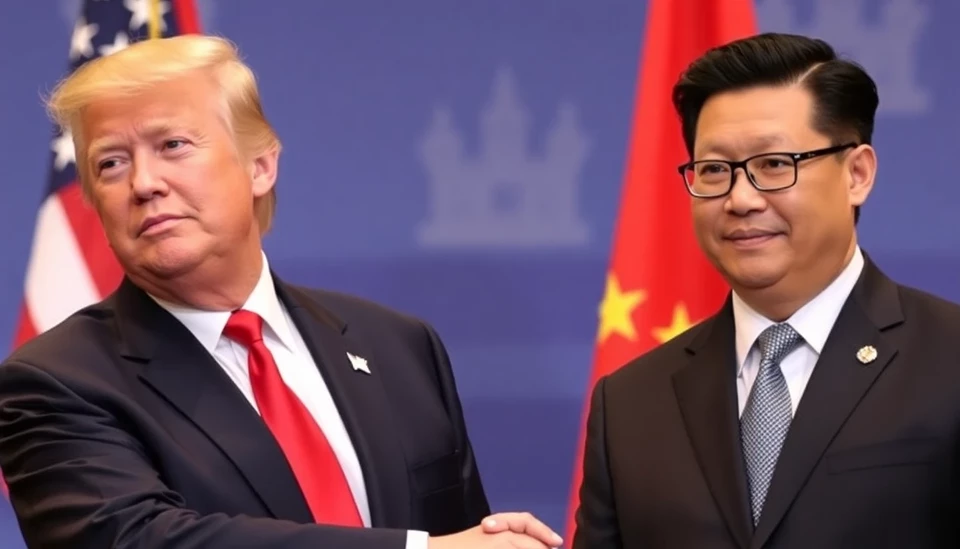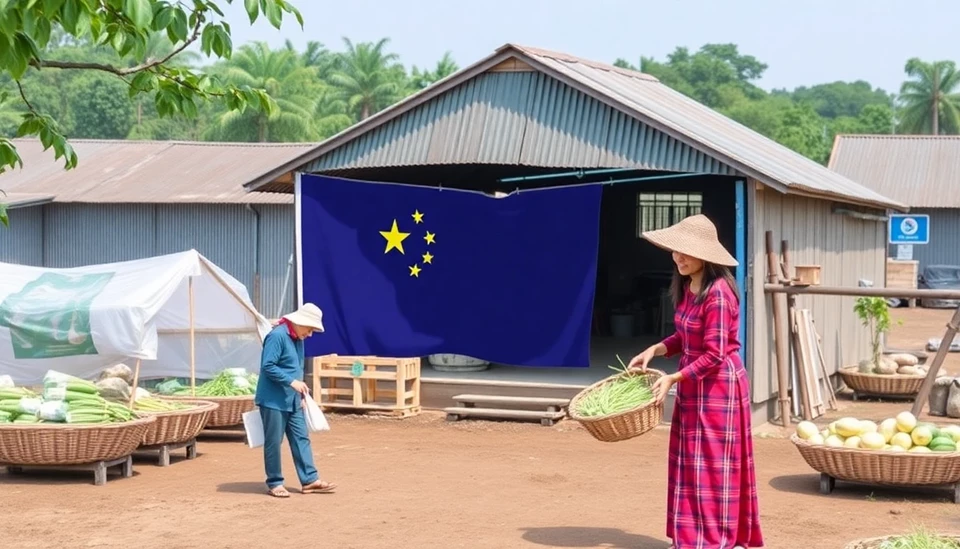
In the face of escalating trade tensions driven by former President Donald Trump's tariffs, Cambodia is strategically pivoting towards China, seeking to strengthen its economic ties with the Asian superpower. This shift is seen as a direct response to the challenges posed by the trade war, which has significantly impacted Cambodia’s export sector.
Historically reliant on markets such as the United States and the European Union for its garment and footwear industries, Cambodia has faced tough economic realities since the introduction of tariffs during the Trump administration. These tariffs have made Cambodian goods less competitive abroad, while increasing costs for local manufacturers who rely on imported materials. Consequently, the Kingdom is now looking to China, an already substantial trade partner, to bolster its economy.
According to recent reports, Cambodia's trade with China has surged, with Chinese investments in the country reaching unprecedented levels. This shift is particularly pronounced in sectors like infrastructure and manufacturing, where Chinese firms have stepped in to fill gaps left by diminished Western engagement.
Analysts suggest that Cambodia's increased reliance on China could have profound implications for its political and economic landscape. With China's Belt and Road Initiative already extending its influence throughout Southeast Asia, Cambodia is poised to benefit significantly from the influx of Chinese capital and technology.
However, this blossoming relationship is not without its critics. Concerns about Cambodia's sovereignty and the potential for over-reliance on China have sparked debates within the country. Observers are wary that as Cambodia deepens its ties to China, it may find itself increasingly aligned with Beijing's geopolitical interests, which could overshadow its own national priorities.
In response to these developments, Cambodian officials have reiterated their commitment to maintaining balanced relations with all international partners, including the United States. Nonetheless, the realities of economic pressure may dictate the trajectory of Cambodia's foreign policy moving forward.
As the trade war continues to reshape the global economic landscape, Cambodia's pivot towards China highlights the intricate balancing act many nations must perform as they navigate the complexities of international trade and diplomacy.
This adaptation reflects not just Cambodia’s immediate economic needs, but also underscores the broader trend of countries reassessing their alliances in a rapidly changing world. How this relationship evolves in the coming years will be critical, as it may redefine Cambodia’s role in the region and its approach to global partnerships.
As Cambodia solidifies its position within the Chinese sphere of influence, the implications for the broader Southeast Asian market and international relations remain to be seen.
#Cambodia #China #TradeWar #Tariffs #EconomicRelations #SoutheastAsia #Trump #BeltandRoadInitiative #GlobalTrade
Author: Rachel Greene


